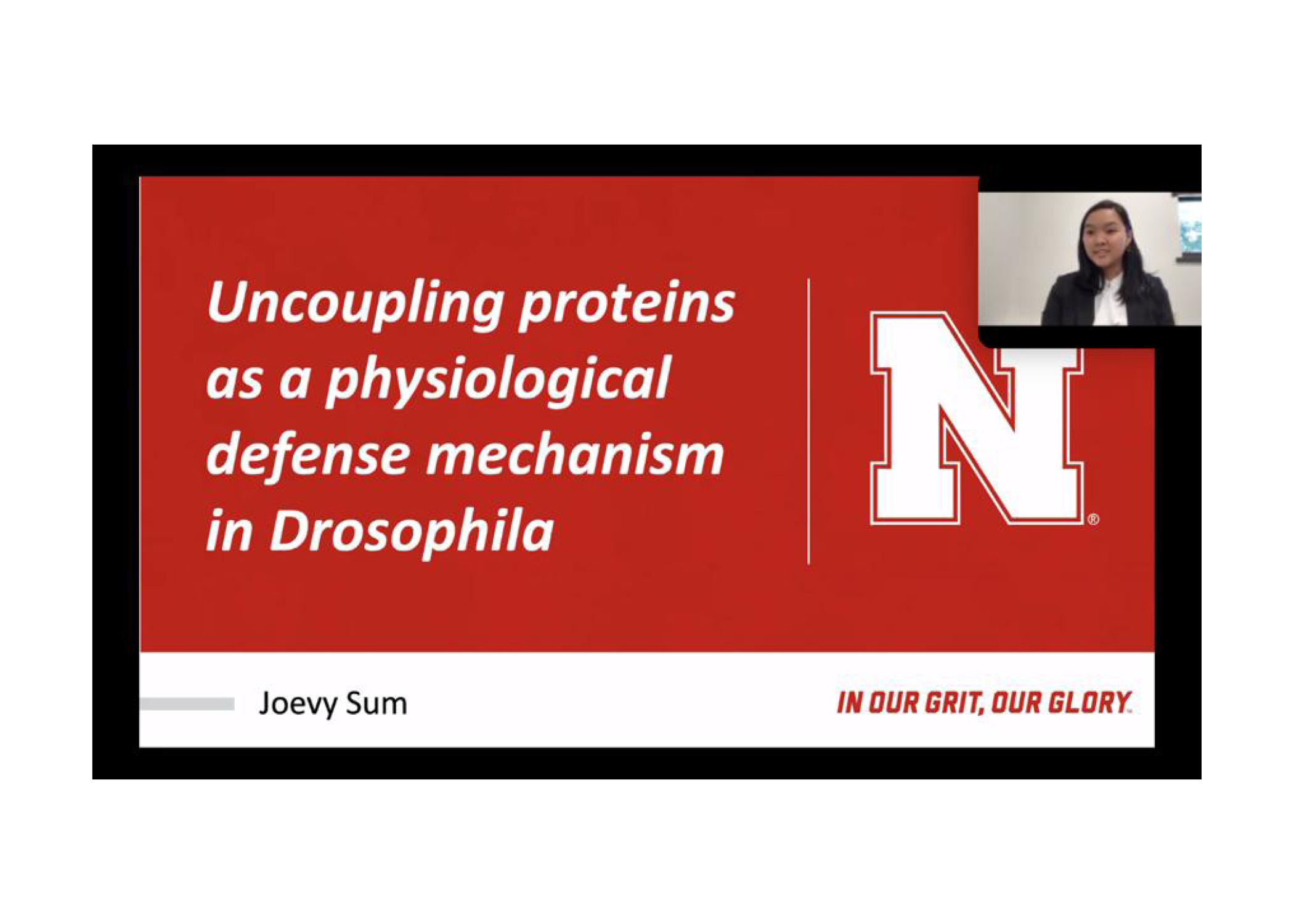
Joining twelve institutions across five continents, the University of Nebraska-Lincoln is now a participant of the International Conference on Undergraduate Research. ICUR was founded in 2013 between staff at Monash University and the University of Warwick, located in Australia, Malaysia and the United Kingdom, with the goal to bring together partner institutions from across the globe and start conversations about student-led research.
Nick Monk, director of the Center for Transformative Teaching, spearheaded the effort to become a participating member. “ICUR raises the international profile of UNL, provides students with the opportunity to develop cross-cultural experience with their peers, and offers a unique opportunity to disseminate their research on a global scale,” said Monk.
Justina Clark, director of undergraduate research, assisted with recruiting students to present for the conference. “My role was to share this opportunity with current undergraduate researchers and identify those who would be a good fit for this conference,” Clark said. “I also met with the students before the conference to practice their presentations and provided moral support during their presentations. We had different plans for the conference before COVID that included live presentations on campus, but like many others, we had to alter our plans.”
Students interested in presenting at future ICUR events, and instructors wishing to learn more about the opportunity, should contact Justina Clark at jclark17@unl.edu.
This year's conference had over 500 presenters (both spoken and poster sessions) with more than 2,500 viewers over two days. Nebraska was represented by Elizabeth Uwase, Andrew Mason, Joevy Sum, Cole Kovarik, Ian McCue, Gloria Dukuzeyesu and Rachelle Johnson.
Uwase's presentation was on Evaluating Evapotranspiration Values in Rwanda while using the Turc and Hargreaves-Samani Equations.
“I picked my topic basing on the on-going agriculture related problems within the agriculture sector of Rwanda since the farmers do not have enough technology to use while monitoring the soil-crop water content to determine when to irrigate and how much they should irrigate," Uwase said. “My idea was how farmers could use simple equations to help them know when they should irrigate their crops. I became involved with this year's conference because I felt a need to share my research findings with the other researchers and students across the globe.”
Dukuzeyesu presented on edible films used to coat fruits and vegetables.
“I am interested in food packaging and conserving our environment," Dukuzeyesu said. "When I talked to my professor about my interests, he was very pleased and suggested that we could work together on this project. It seemed interesting and very practical. Those edible films protect the products against deterioration and thereby extend the product's shelf life.”
The student presenters estimated that they put in anywhere from 500 hours of research time, to an entire academic year.
“I began compiling data for this project in February, so the work that will be featured in my presentation is a product of about seven months of work,” said Kovarik who presented on how civil society organizations mobilize at the European Court of Human Rights in an attempt to influence the development of European policy. “I completed much of the work for this project as a recipient of the university's Undergraduate Creative and Research Experience grant,” said Kovarik.
The UCARE program is a paid opportunity to work one-on-one with a faculty research advisor in a variety of fields and helps students build up their research.
Mason also found out about ICUR through the UCARE website and was encouraged to apply by his mentor for his presentation entitled Optimizing Membrane Distillation with Solar Thermal Collectors. He intends to pursue graduate school next year and continue his research.
This was the first international conference for the presenting undergraduates and they took away some key lessons.
“I had lots of fun sharing about my research,” Sum said. “I learned that preparation and conducting yourself in a professional manner is so important, especially when representing your university during an international event."
“The presentation went well. This was my first experience with talking about my own research, so there was definitely a learning curve,” said Kovarik. “It is important to be able to talk about your research with people from diverse backgrounds and presenting at ICUR is a great, less intimidating way to get some early practice.”
“I thought the quality of the UNL presentations was outstanding,” Monk said. “Combining excellent research skills, intellectual heft, and really interesting topics, our Huskers more than held their own on the global stage. Personally, I can’t wait for next year and – we hope – more in-person events and even more commitment from UNL.”
“I was very proud of our students and how they represented both UNL and the United States,” Clark said. “The students answered audience questions with no problem, and I am even more impressed by their performance considering this is our first time participating in this conference and we all were unsure as to what to expect. I am thankful they were willing to go out on a limb on this with me.”
And much like Clark, the students who presented during the conference also encourage other undergraduates to participate in research and presentation opportunities.
“To anyone reading this, you have potential,” Sum said. “I'm a woman, person of color, and an international student from a developing country. If I could get involved in research in my junior year, you can too! Stay curious and work hard. Then, find a good support system and mentors who believe in you.”
More details at: https://teaching.unl.edu/